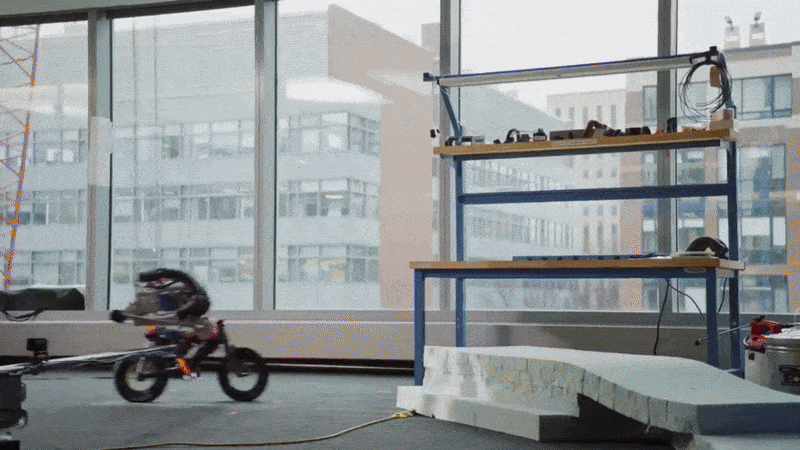In yet another US congressional hearing into sudden unintended acceleration in its vehicles, Toyota insisted yesterday that its electronic throttle control system was safe and reliable.
Toyota Motor Sales, USA President and COO James Lentz, testifying in front of the House Energy and Commerce Committee, said,
"Toyota remains confident that our electronic throttle control system is not a cause of unintended acceleration. Toyota and Lexus vehicles are inherently designed so that a real world uncommanded acceleration of the vehicle cannot occur."
In addition, Mr. Lentz testified that Toyota had looked into hundreds of cases of reported uncommanded acceleration and that,
"Significantly, none of these investigations have found that our Electronic Throttle Control System with intelligence, or ETCS-i, was the cause."
Furthermore, Mr. Lentz said that,
"The engineering and scientific consulting firm Exponent has already completed more than 11,000 hours of testing and analysis of our ETCS-i and its comprehensive evaluation is ongoing."
However, Mr. Lentz also admitted to the House committee that up until very recently, Exponent had actually been working for Toyota's lawyers concerning the lawsuits that have been filed against the company and not for Toyota itself.
Lawmakers immediately jumped on that admission, as well as Toyota's plan (not implemented) for discrediting its critics revealed last week, as proof that Toyota wasn't seriously looking into electronic throttles as a potential cause of sudden unintended acceleration.
Committee Chairperson Henry Waxman said that in regards to Toyota's claim of extensive and independent testing,
"there is no evidence that Toyota has conducted extensive or rigorous testing of its vehicles for potential electronic defects that could cause sudden unintended acceleration."
Probably most troubling from Toyota's perspective is that the Committee asked the Exponent engineer in charge to see his investigation work plan, he said that he had none.
Quoting from Chairman Waxman's opening statement,
"When the Committee interviewed Dr. Shukri Souri, the Exponent engineer who oversees this work, what we learned was astonishing. Exponent has no written work plan for this project, no written time line, and no written specifications for the experiments it has run or plans to run. Exponent has no written list of the potential causes of sudden unintended acceleration that it plans to study. And though he is personally responsible for the hardware, software, and electronic interference testing Exponent has done or will do for Toyota, Dr. Souri takes no written notes on Exponent’s work."
"We asked Dr. Souri what could explain this remarkable lack of documentation. He explained that writing down what Exponent does would 'limit the creativity' of the engineers working on the project."
Hmm, I need to remember to use that reasoning in future. I also wonder how Dr. Souri documents the billing of his time to the investigative effort.
Congressman Waxman kindly labeled the reasoning only "preposterous." You can probably come up with more colorful expressions.
Separately, Toyota is announcing today a recall of its most expensive Lexus vehicles, including the LS 460, LS 460 L, LS 600h, and LS 600h L for steering problems caused by both a mechanical and software related issue. The LS 600h L sells for $100 K.
According to Lexus, the problem involved the optional Variable Gear Ratio Steering (VGRS) system. A Lexus press release concerned with the recall says,
"The VGRS may exhibit a temporary steering wheel off-center condition of up to 90 degrees after driving quickly from a very tight turn where the steering was at the end of its travel (full lock position - left or right). VGRS automatically corrects the steering wheel off-center condition as the vehicle is driven within approximately one to three seconds. The driver may notice this condition as the steering wheel slowly moves to the center position while driving straight during the VGRS correction."
At least Consumer Reports magazine lifted its rare "don't buy" rating on Toyota's 2010 Lexus GX 460 SUV 10 days or so ago. Consumer Reports had placed the rating in mid-April on the SUV because of software problems with the vehicle's electronic stability control that could lead it to roll-over in certain circumstances. Toyota agreed with the finding, and halted sales of the vehicle until a software fix was developed and sent out to its dealerships.
Robert N. Charette is a Contributing Editor to IEEE Spectrum and an acknowledged international authority on information technology and systems risk management. A self-described “risk ecologist,” he is interested in the intersections of business, political, technological, and societal risks. Charette is an award-winning author of multiple books and numerous articles on the subjects of risk management, project and program management, innovation, and entrepreneurship. A Life Senior Member of the IEEE, Charette was a recipient of the IEEE Computer Society’s Golden Core Award in 2008.



